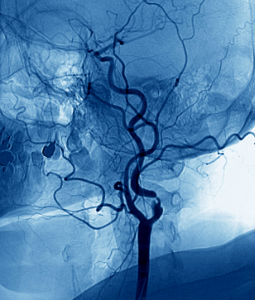 Artificial intelligence (AI) has transformed many industries, at times replacing entire jobs that were previously performed by humans. While medicine relies on innovative technology to a significant extent, AI has yet to majorly disrupt the practice of medicine itself. Many applications of AI, for example, have been applied to administrative tasks but less so to things like medical diagnoses.
Artificial intelligence (AI) has transformed many industries, at times replacing entire jobs that were previously performed by humans. While medicine relies on innovative technology to a significant extent, AI has yet to majorly disrupt the practice of medicine itself. Many applications of AI, for example, have been applied to administrative tasks but less so to things like medical diagnoses.
But what will happen in the future as AI and its applications evolve? A new review covers the potential role of AI in the practice of medicine and discusses the advantages and potential pitfalls of a shift toward the use of AI in areas like radiology. Radiology may indeed be poised to be the medical specialty most affected by AI applications.
The value propositions for AI in radiology are extensive. Given that AI can learn from countless images, it has the power to image match and identify patterns that may elude human capabilities. It can also offer instant feedback. However, experts point to the importance of understanding that AI cannot replace trained physician radiologists and that while it may be able to aid in diagnosis, it may be best used for other purposes, such as medical training.
According to the authors, while there may be several benefits to incorporating AI into the practice of medicine, it is important to be mindful of some of the implications and risks. As the authors point out, the risks extend well beyond issues that are inherent to many technologies, such as data privacy, to the actual practice of medicine. For example, physicians becoming overly reliant on the technology for diagnostic purposes could threaten their autonomy and our ability to effectively train new physicians.
With the medical community approaching AI in a mindful and deliberate manner, it is the hope of most physicians, researchers, and other healthcare stakeholders that AI can be used as a tool to bolster the practice of medicine as well as patient outcomes. As AI solutions become utilized within healthcare settings, it will become clearer which applications are the most appropriate and valuable.
Reference
Arora, A. (2020). Conceptualising artificial intelligence as a digital healthcare innovation: An introductory review. Med Devices, 13, 223-230.
